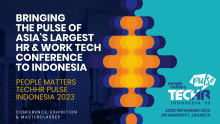How HR plays a major role in ensuring business continuity

The human-resource (HR) function has undergone a significant shift and has now morphed into a strategic stakeholder in an organization’s growth. HR has a significant impact on an organisation’s success at recruitment, onboarding, recognition, Learning and Development (L&D), performance management, employee engagement, and experience. These also form the subsets of the strategic objectives of any company. In short, I would say, the HR function contributes as much to a firm’s growth as business functions do. After all, it’s the people who drive the firm and the HR oversees them.
The HR function weaves in the practice of innovation in every aspect critical for an organisation’s success. It begins with being able to attract and retain the most innovative people, framing and implementing organisation policies and practices, defining organizational structures, influencing organisational culture that enables employees’ growth and formulating special benefits that lead to job satisfaction, work-life balance, and much more.
As the world continues to recover from the pandemic, the HR function continues to take centre stage in helping organizations transition to normalcy. This function not only ensured employees’ health and safety during the pandemic but also helped in business continuity by strategically implementing work-from-home practices. At the same time, to stay ahead of the competition, an evolved HR model offers a plethora of learning and development opportunities to skill, upskill, and reskill employees as the need may be, and all this is happening through a virtual platform. The pandemic has given organisations an opportunity to evolve the HR model and incorporate more virtual learning and development training for employees.
Technology has played a crucial role across business and functions by facilitating seamless processes, right from talent acquisition, onboarding engagement, learning and development to exit management.
The pandemic-induced isolation and remote work also impacted the physical and mental well-being of employees. Had HR function not been there, companies would have been grappling with a massive human crisis. We held regular sessions to ensure the overall well-being of our people. Keeping employee wellness at the centre, many companies extended a helping hand by providing counselling services to those experiencing challenges in life. With this, they were able to support their people to get back to normal, thereby contributing wholeheartedly to the business and ensuring continuity.
The other aspect is that the workforce across the globe is under stress due to job insecurity and instability and hence, it becomes essential for organizations to practise empathy. Recognition for the work done, or rather recognition for going beyond during the crisis felt like the need of the hour, and served as an interim measure during the pandemic. By celebrating the achievements of their employees and recognizing good work, companies boosted employee motivation and maintained momentum of employees and the firm.
As businesses become increasingly cross-functional, process improvements and product expansions are necessary for survival in an intensely competitive environment. The HR function is an area of immense opportunities. It hires and develops talent to harness their potential in the field of innovation and looks forward to seeing the “technovation” story in the real estate sector evolve in the coming years.
In short, I would say HR function with innovation and technology at its heart has been the key driver of organisational and individual success. It is that one function that can be a game changer in today’s competitive environment.















